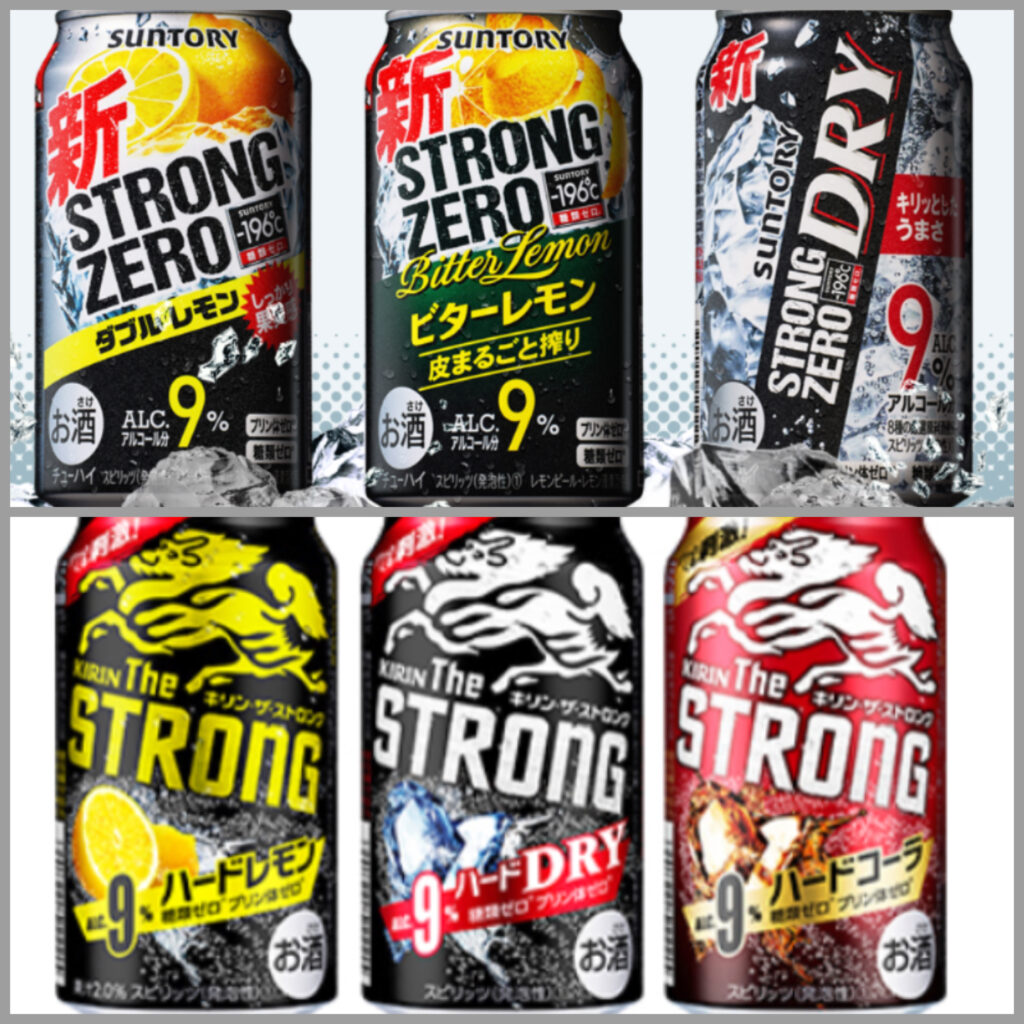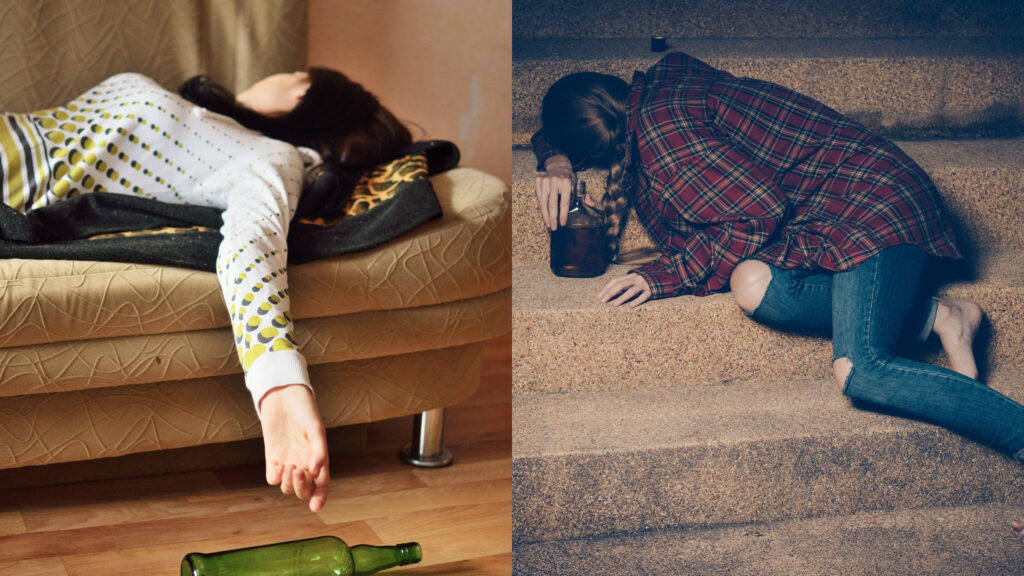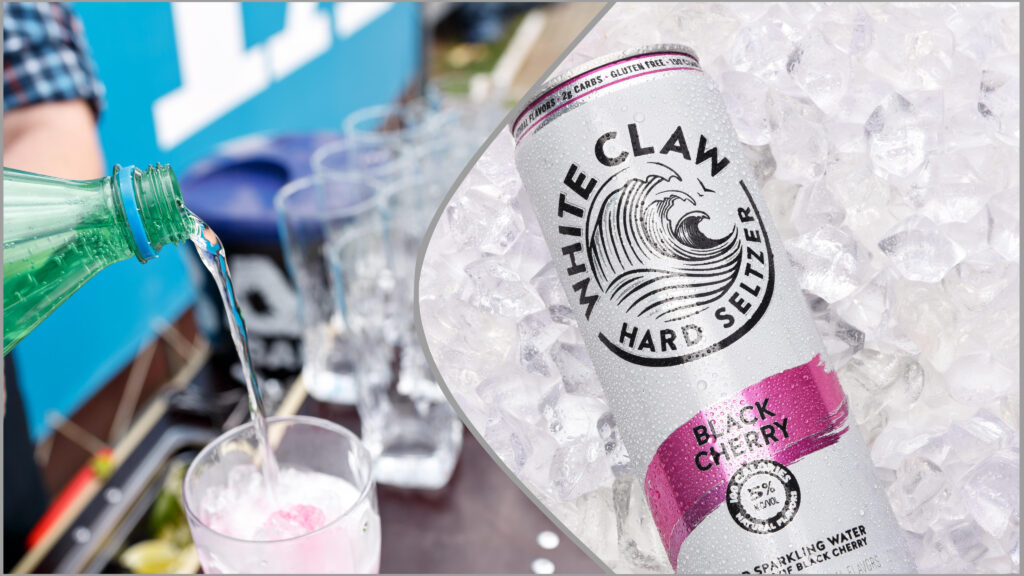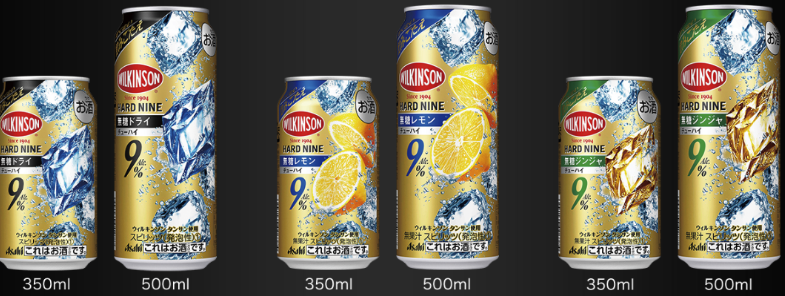
Until recently in Japan, alcohol called Strong Chu-hai was popular among Japanese youth and people with unstable jobs.
The biggest reason why this liquor became a big hit in Japan is that in Japan, the liquor tax will double for alcohol with a temperature of 10 degrees or higher.
Strong Chu Hai has become an attractive drink for those who are not financially free because of the rapid increase in the price of alcohol, and if it has a variety of flavors,
it has gained popularity because it has additional carbonation without using it for alcohol content.
Since the alcohol content of Stronger, similar to Strong Chew High, contains 7.5 tequila cups for two 500ml cans and 10.75 tequila shots for three 500ml cans, many people could drink Strong Chew High and get drunk quickly.
Liquor companies also recognized people as consumers who mainly consume Strong Chu Hai and began to export advertisements with slogans such as cheap but strong advertising headlines, cheap and fast.

(Source from Reuters/Alamy)People who simply liked to drink also contained an excessive amount of alcohol per day.
However, the bigger problem was that tequila, etc. had a high alcohol content, so it felt bitter and strong when drinking alcohol,
but Strong Chu Hai had additional carbonation and added sweetness and fruit scent, making it difficult for the person to recognize it, leading to excessive intake
At the beginning of the trend, the problem, whether all the problems were the case, was not highlighted The problem began to emerge as the trend continued for a long time.
Alcoholics like drinking beverages increased significantly among people in their 20s and 30s,
and diseases such as cirrhosis and liver cancer increased significantly among the most consumed age groups.
At this time, COVID-19 began at the end of 2019 and prolonged, the Japanese government encouraged all citizens to stay home (stay at home) movement,
and people could not gather outside and drink alcohol like in the past As a result, the number of people drinking at home instead of having meetings has increased significantly,
and the simple way of making cocktails at home has become very popular on the Internet

(Source from Reuters/Alamy)At first, it was popular to add orange or lemon after mixing carbonated water and beer, and the trend spread quickly as people posted various pictures on Instagram and other places to look prettier.
And as the trend began to increase people’s interest in health due to COVID-19, hard-seltzer has been popular in Japan since early this year, which means carbonated water with alcohol and “Hard,”which means alcoholic beverages for soft drinks, and “Seltzer,” which means carbonated water.
Hard-seltzer includes “low sugar”, “low calories”, “low alcohol”, and “gluten-free”. Because it is healthy and low alcohol,
it is popular with young generations who care about their health because it is less burdensome for their bodies.
It is popular among young generations for enjoying alcohol without any burden.
The biggest difference between Chu Hai and hard-seltzer is that Chu Hai has a strong juicy and sweet taste,
while hard-seltzer has little sweetness similar to ordinary carbonated water
These days, younger generations are not socially free to act and are looking for healthier products to replace what they used to do with their bodies for their health.
In line with this trend, if major Japanese beer companies developed and started selling hard sellers tailored to Japanese tastes, the lemon and lemon markets among hard sellers are gaining the most popularity in Japan.

In addition to Sapporo Beer “WATER SOUR”, Kirin Beer “Sminoff seltzer” and Asahi “FRUITZER” , Coca-Cola, which used to handle only non-alcoholic drinks, has already entered the lemon company market, and has been showing high sales since its launch.
These changes in the values of the younger generation are bringing about changes in various fields.
In the past, when I was drinking, I didn’t drink with expectations or thoughts about health Most people stopped drinking when they thought about their health,
but now more and more people are thinking about enjoying what they want to enjoy and enjoying it for a longer time.
SOPHIA KIM
ASIA JOURNAL

